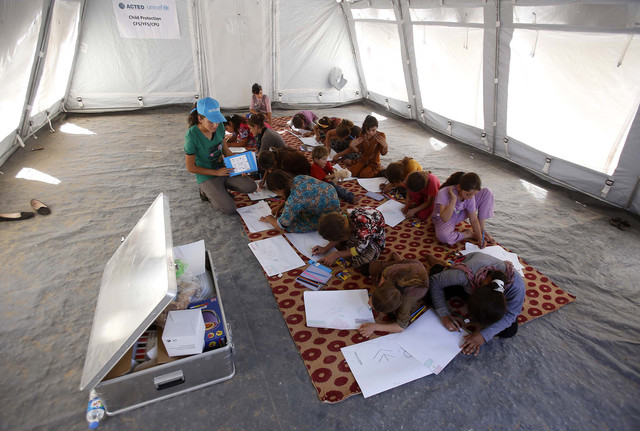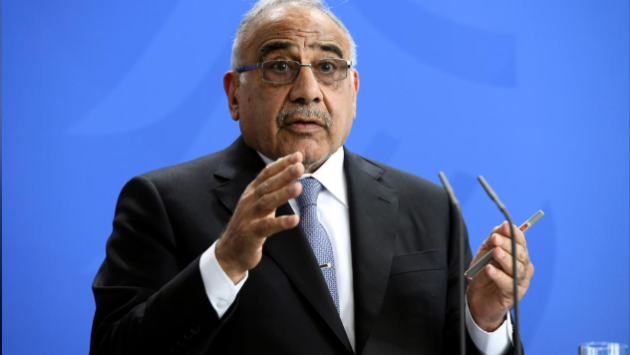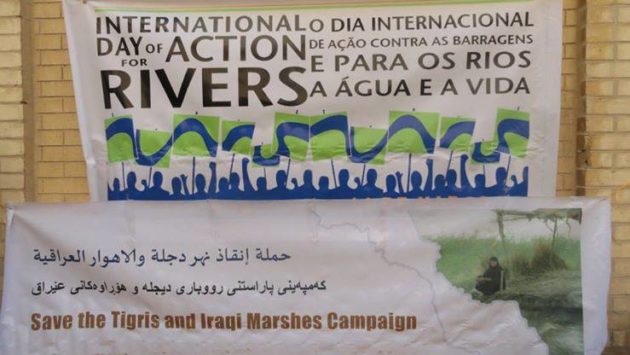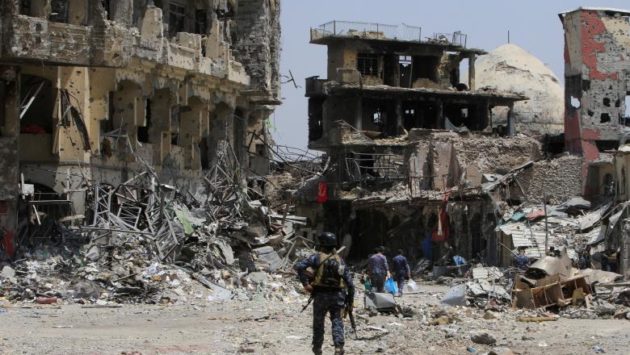Inside Mosul: Thousands of Students, Teachers Trapped Between Extremists And Education Ministry
niqash | Khales Joumah | Mosul
Inside the extremist-occupied city of Mosul, teachers have been told to report to work and teach an extremist-formulated curriculum – or face the consequences. Meanwhile the Ministry of Education in Baghdad, which still pays their salaries, says if they show up to work, they may be fired.
Usually at this time of year, Mosul girl Athara Hussein, would be attending a school near her home. Today, she’s not there. But from her bedroom window she can see who is: Families are living in her school, using it as a home and their children are playing in classrooms she once sat in.
Hussein still hopes to finish her exams and go to university.
“I dream of going back to school,” she wrote in a letter to a friend. “I don’t just want to watch it from the window of my house. It would be wonderful if this city was liberated from ignorance,” she concluded, referring to the fact that Mosul is currently under the control of the Sunni Muslim extremist group known as the Islamic State, or IS.
Many local schools are currently occupied by internally displaced Iraqi families who have fled nearby fighting between the IS group and other forces, like the Iraqi Kurdish military.
And Hussein is one of thousands of students in the northern Iraqi province of Ninawa who face an uncertain future, in terms of their education. And it is not just about classroom space. In the areas controlled by the IS group there is a struggle for control of the education system going on, between the extremists themselves and the central government in Baghdad
The government in Baghdad has said it will not endorse any exam results gained in schools in areas under IS control. It won’t open the schools and universities there either. The Ministry of Education has continued to pay the salaries of around 53,000 employees in the area but all of them are also on compulsory leave until the end of the current year. The ministry has also threatened to fire anyone who goes back to their jobs or who doesn’t abide by its decisions.
Meanwhile the IS group is also trying to gain control of local education systems, as part of its activities to act like a real state within its self-declared Caliphate.
To end what they describe as “ignorance in the city” a statement recently issued by the extremists said that all students studying during the scholastic year between 2013 and 2014 can be considered as having passed their exams. The statement also said that all schools under the IS group’s control will open their doors on Sept. 9.
An IS educational department had been created and this would be responsible for getting the educational curriculum in IS-controlled areas in line with the group’s version of their religion. An employee of the Ministry of Education, who could not be named for security reasons, told NIQASH that the head of the IS’ department of education is a man called Khaled al-Afari, a 30-year-old Turkmen from the town of Tal Afar, who has a degree in Islamic science.
“The biggest danger lies in this new curriculum, if the IS group manages to teach it beyond primary school level,” the employee explained. “Al-Afari is known as a radical Islamist and parents should not send their children to him for education – they won’t turn out to be doctors or engineers or lawyers. They will grow up to be members of the IS group.”
Additionally there have been extremists pulling strings at local tertiary institutes too. University buildings have been used for various purposes by fighters from the IS group and they’ve started to interfere in university affairs.
At Mosul University, the fine arts institute was closed and the law school’s curriculum was altered. “It is a crime against the arts and sciences and we shouldn’t tolerate it,” one university professor, who decided to stay on at the institute, told NIQASH; most others have left.
However, he says, his colleagues advised him not to protest lest he be killed. The professor now says that if he is going to be forced to teach subjects as formulated by the extremists, then he too will leave Mosul.
Two days after the IS group published their statement on education in Mosul, the new department head summoned all of the employees of the Ministry of Education and demanded they resume work this week, on Sept. 9.
Local teachers and other staff are well aware that they are trapped between the IS group’s hammer and an anvil made of Baghdad’s decisions. They are now working under two bosses – one is al-Afari and the other is Mohammed Iqbal, who was appointed Minister of Education by the Iraqi Parliament earlier this week. Coincidentally Iqbal is also from Mosul. But right now, the teachers and school staff know they have no choice but to obey the IS group’s orders, especially as punishments like executions are rising in the city.
As a result, on Sept. 9, some of the teachers and other staff went to work. However, as they say, they didn’t really do anything there. One of the teachers told another that, “we just said hello, then left after half an hour. We just went because we had to obey the order”.
It’s not only students and teachers who have been affected by the IS group’s decisions. Those working in the main market for educational supplies and stationery on Najafi street in Mosul are also feeling the impact.
Every year the store owners here wait for September and the school term to begin to do their best business. However this year that doesn’t seem like it’s going to happen. And quite possibly by next year some of these stationery stores will be restaurants –most likely staffed by students who had to forgo their education.





